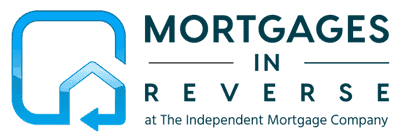As you watch Vancouver's real estate landscape 'mature', it's fair to say it's been a roller coaster ride. You've seen soaring prices, changing demographics, and fluctuating interest rates.
In this shifting environment, you might be considering your options, like reverse mortgages. But before you jump in, there's more you need to know. What impacts could these trends have on the value of your home and your financial future?
Stick around, we're about to unpack this.
Key Takeaways
- Vancouver's housing market is marked by high prices, driven by factors like low-interest rates and the Affordability Crisis.
- Reverse mortgages, a financial tool for homeowners aged 55 and above, are increasingly popular in Vancouver.
- These mortgages offer seniors a way to access home equity without selling, aiding financial independence.
- Understanding market trends and mortgage options like reverse mortgages is vital in making informed housing decisions in Vancouver.
Understanding Vancouver's Housing Market
Diving into Vancouver's housing market, you'll find it's characterized by its high property values, a result of the city's strong economic growth and increasing demand for real estate. But it's not just about high prices; you've got to consider the nitty-gritty of property taxation and rental regulations.
Property taxation in Vancouver is complex, but it's a crucial part of owning real estate. The City determines property taxes annually based on your property's assessed value and its classification. It's not a static figure either; it can fluctuate with changes in market conditions, alterations to your property, or shifts in the city's budget. Understanding this can significantly impact your investment decisions.
Then, there's the matter of rental regulations. You'll find that Vancouver has strict rules to protect both landlords and tenants. For instance, rent increases are regulated, and eviction rules are stringent. It's essential to grasp these regulations before venturing into the rental market.
Current Housing Market Trends
Having considered the nuances of property taxation and rental regulations, it's crucial to keep an eye on the current trends shaping Vancouver's housing market. You're likely aware of the much-discussed Affordability Crisis. This is no mere buzzword; data from the Canadian Real Estate Association shows that Vancouver's median home price has rocketed to over $1 million, far outstripping wage growth.
Market predictions offer a mixed bag. Some analysts forecast that an increase in supply, driven by a surge in new constructions, will eventually stabilize prices. However, others fear that demographic trends, particularly the influx of wealthy immigrants, will continue to drive up demand and prices.
Furthermore, low-interest rates have fueled a buying frenzy, pushing prices even higher. This could lead to a precarious situation if rates rise and buyers find themselves over-leveraged.
The takeaway? It's a challenging environment for both buyers and sellers. For buyers, the high prices necessitate careful financial planning. For sellers, it's about understanding the market dynamics and setting realistic prices. As always, it's essential to stay informed and adjust your strategy to navigate Vancouver's ever-changing housing landscape.
Basics of Reverse Mortgages
While navigating Vancouver's complex housing market, you might find reverse mortgages to be a viable financial tool, especially if you're a homeowner aged 55 or above. Understanding the basics of reverse mortgages is crucial.
Let's break down the key aspects in a 3×3 table:
| Aspect | Details | Example |
|---|---|---|
| Eligibility Criteria | Must be 55 or above, own a home, and live in it as your primary residence | If you're 60, own a house in Vancouver and live in it, you're eligible |
| Loan Amount | Typically up to 55% of your home's value | If your home is worth $500,000, you could get a loan up to $275,000 |
| Repayment Options | No repayments until you sell, move, or pass away | You can live in your home without making any mortgage payments |
Note that the loan amount depends on several factors, including your age, property value, and the current interest rates. You're not required to make any repayments as long as you live in your home. However, interest does accrue over time, which you or your estate must eventually pay back. Make sure to consider these factors when exploring reverse mortgages.
Reverse Mortgages in Vancouver
In the context of Vancouver's housing market, reverse mortgages offer you a unique opportunity to tap into your home equity without having to sell or vacate your property. It can be a helpful tool to achieve a senior's financial independence, allowing you to convert part of your home's value into tax-free income.
However, every coin has two sides. Like any financial decision, there are reverse mortgage pitfalls to consider. You're essentially borrowing against your home, which can lead to a decrease in equity over time. If you're not careful, you could end up owing more on your home than it's worth.
Data from the Canadian Mortgage and Housing Corporation indicates a rise in the uptake of reverse mortgages in Vancouver, primarily due to the city's soaring housing prices. With the average house price in Vancouver at over $1 million, it's no wonder many seniors are turning to reverse mortgages as a method for financial stability.
Financial Considerations: Housing and Mortgages
Before diving into reverse mortgages, it's crucial to understand the broader financial landscape of housing and mortgages in Vancouver.
To help you comprehend, here's a breakdown:
- Housing Prices: The Vancouver housing market is one of the most expensive in Canada. In 2021, the average home price was $1.36 million, a 5.5% increase from the previous year. This trend indicates a robust market with high potential for capital appreciation.
- Mortgage Rates: As of 2021, the average mortgage rate in Vancouver is around 1.5%. This low-interest environment could make borrowing to invest in property a viable option.
- Investment Strategies: With high property prices, strategies like buying rental properties for steady income or flipping houses for quick profits are popular. However, they require substantial initial investments, and the associated risks should be carefully assessed.
- Retirement Planning: Given the high cost of living, it's essential to have a solid retirement plan. A reverse mortgage could provide a steady income stream in your golden years without requiring you to sell your home.
Understanding these factors will help you make more informed decisions about housing and mortgages in Vancouver.
Frequently Asked Questions
How Do Property Taxes in Vancouver Affect Housing Affordability?
In Vancouver, you're not just juggling apples and oranges with housing affordability. Property taxes, specifically their tax assessment impact, play a key role too.
When they rise, they can turn affordable homes into financial burdens. However, don't overlook property tax exemptions. They're a lifeline, reducing your tax bill and making housing more affordable.
It's essential to consider these factors when navigating Vancouver's complex housing market.
Are There Specific Neighborhoods in Vancouver That Are More Popular for Reverse Mortgages?
Yes, neighborhood demographics significantly impact reverse mortgage accessibility in Vancouver.
More affluent areas, like West Vancouver and Shaughnessy, tend to have higher rates due to increased home equity.
Conversely, areas with lower property values, such as East Vancouver, see less usage.
It's vital to understand this trend when considering a reverse mortgage, as it directly affects the loan's potential size.
What Are the Legal Implications of Taking a Reverse Mortgage in Vancouver?
Just like walking on thin ice, understanding the legal implications of a reverse mortgage in Vancouver is critical.
You'll need to meet certain reverse mortgage eligibility requirements.
It's essential to conduct a financial impact analysis before you proceed.
You're trading home equity for cash, which might impact your tax situation and eligibility for government benefits.
Therefore, it's always recommended to consult with a legal advisor to understand all the implications thoroughly.
How Does the Vancouver Housing Market Compare to Other Major Cities in Canada?
In comparing Vancouver's housing market to other major Canadian cities, you'll find it's distinctively dynamic. Influenced heavily by foreign investment, it often experiences higher price surges. Vancouver's rental market, too, is considerably tight, with low vacancy rates and high rents.
However, it's crucial to consider variances in local economies and demographics when making such comparisons. Understanding these nuances can aid in making informed decisions about home ownership or investing in real estate.
Are There Any Government Programs or Grants Available in Vancouver to Help With Mortgage Payments?
Yes, you'll find several schemes in Vancouver such as the 'First Time Home Buyer Program' and 'Down Payment Assistance'. These programs provide loans, grants, or tax rebates to aid with mortgage payments.
Each has specific eligibility requirements. It's crucial to comprehend all details and data before applying. Remember, understanding these aids can make your journey to homeownership in Vancouver significantly smoother.
Therefore, carefully consider these government initiatives when planning your home purchase.

